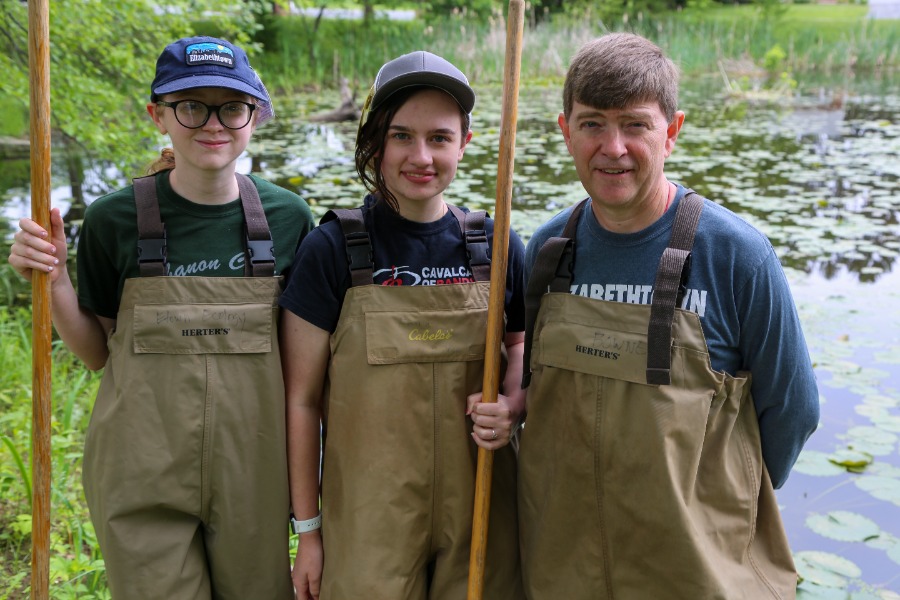A pair of students at Elizabethtown College are cataloging the various plants and animals found on four different wetland restoration sites in Lancaster County and are evaluating if the sites show increased biodiversity. These wetlands, which have been restored to improve water quality and flood risk, serve as a valuable way of addressing the global decline in plant and animal species.
The independent student research and collaboration with an Etown faculty mentor is part of the Summer Creative Arts and Research Program (SCARP) program.
Title of Research
The Effects of Floodplain Restoration on Biodiversity
Student Researchers
Jessica Gutekunst ’24 (Environmental Science major)
Ireland Keeney ’23 (Biology major)
Faculty Mentor
David Bowne, Professor of Biology
What are you researching?
Jessica: We are conducting a biological survey of amphibian and plant species present at several wetland sites in Lancaster County. The majority of these sites are restored wetlands that have had legacy sediment removed, with the exception of one being a wetland scheduled for restoration later in the year. Amphibians are documented using D-frame dip nets and quadrant sampling is used to record the percent coverage of vegetation on sections of the site.
Why did you choose this topic?
Jessica: I am interested in seeing how much each site varies in its biodiversity and recognizing what factors may be the cause. The research involved also lets me get useful field experience and understand what it’s like to work in a more hands-on environment with nature.
Ireland: I was interested in seeing how biodiversity changed at various locations. Each of the floodplains have been restored for different amounts of time and I wanted to see how the time difference affected the biodiversity.
 What is the most interesting aspect of this research?
What is the most interesting aspect of this research?
Jessica: The most interesting aspect of this research has been collecting the data. We not only get to develop a portfolio of species for each site but also learn about the ecological interactions that occur in the habitat. These observations are much more personal and impactful than if they were taught in a classroom or lab setting.
Ireland: The most interesting part of the research has been going into the field and seeing how each of the sites vary in the biodiversity present. Since all the locations are restored floodplains, I previously thought that they would all be similar; however, that isn’t the case.
How has Professor Bowne helped you?
Jessica: Dr. Bowne has helped me broaden my knowledge of local plants and amphibians in Lancaster County while also giving suggestions for sampling methods. His expertise and skill have provided me with a much more fruitful experience, and I have been able to grow confident in species identification with his guidance.
Ireland: Dr. Bowne has helped me expand my identification knowledge of various local plant species as well as amphibian species. He also helps expand our knowledge of various field techniques such as different ways to survey vegetation.
Hear from the faculty mentor – David Bowne
“Jessica and Ireland have been a joy to work with,” Bowne said. “They both wanted to develop plant identification skills during SCARP, so we incorporated this into the project. “I am not sure they knew this meant collecting plant data in the open sun on 90 degree days while wearing waders. It is physically demanding work, but they have handled it without complaint. They show genuine excitement upon learning new species and being able to identify common wetland plant species.”

